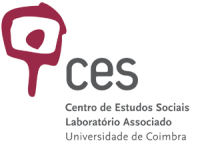19th Workshop APDR
Faculty of Economics, University of Algarve, Faro (Portugal), 29th November 2013
"Resilient territories: innovation and creativity for new modes of regional development"
Background
In a context of economic turbulence, resilient territories gained relevance for academics, planners and decision makers. Resilience can be understood as a non-equilibrium characteristic that facilitates a socio-economic system to recover from a negative impact by re-entering a former trajectory or by adapting a new trajectory that successfully deals with the external pressures. Resilience is also connected but not fully integrated in literature with more stabilized notions, such as innovation and creativity. The International Workshop in “Resilient territories” invites senior and early stage researchers, but also practioners, working in these topics, to debate the research and policy-making agenda, in a transdisciplinary perspective, for this particular field of innovation studies and regional science.
Economic Turbulence and Resilience
Europe is in a delicate situation. Contrasts of growing competitiveness and the lack of capacity to answer challenges from the recent economic turbulence in particular regions and countries created a sense of urgency to act on member-states cohesion.
One justification for this diversity within European Union regard the capacity to adapt to external shocks, to resist from negative impacts or to evolve to new socio-technical regimes, characteristics being studied in the last years by regional scientists to understand the set of dynamic conditions that create a more or less resilient territory. Resilience was thus a notion that was adapted from the study of ecological systems and other fields to the understanding of geographically embedded socio-economic systems. Resilience is often a characteristic connected to a threshold of socio-economic variety and specialization that facilitates a smooth adaptation for challenges. With the recent crisis, some regions have been dealing with this concept trying to guarantee by planning the adequate conditions for resilience.
Innovation
Innovation was a central European Union’s policy flagship that was also very influential in the last decades in science and technology studies. In particular, Innovation systems have been used as a framework to develop and implement policies in transnational, national, regional, local, and even sectoral contexts. An innovation system focuses a specific area or sector, where a group of actors are interconnected with the goal to innovate. The core of the system has the main function of innovation but has also a broader contribution for the growth and development. In this way, when analysing the innovation system it is important to understand actors and linkages that are directly connected to science, technology and innovation infrastructure, but also to understand the institutional architecture and a vast group of building blocks that are in the centre of the socio-economic profile of the region or state, providing the range of possibilities for adaptation and evolution.
Creativity
Contributions on the role of creativity in regional development have increased since 2002 Richard Florida’s best-selling book ‘The Rise of the Creative Class’ gained media and city planners attention. The ‘creative class thesis’ argues that the basis for territorial advantage is talent, and to enhance economic growth, places should develop, attract and retain creative people who can stimulate knowledge, technology and innovation, and thus, resilience. Creative people can be defined as a new emerging collective, the creative class. Fundamental to talent attraction and retention is the place quality, combining factors such as openness, diversity, street culture and environmental quality. Creative class members prefer places that are tolerant, diverse and open to new ideas. The place provides an eco-system in which diverse forms of creativity can root and flourish. The existence of culture and leisure that support particular lifestyles provides incentives for the location of people who like this quotidian. These factors, more or less intangible, structure institutions and an environment of ‘cosmopolitanism’ that influences the locational decision of talent.
Topics
-
Theoretical contributions towards the integration of resilience, innovation, creativity and/or other relevant regional science branches
-
Empirical studies focusing the conditions for resilient territories
-
Smart specialization connections with creativity and innovation
-
Impacts of talent and human capital in regional development
-
Articulation of related variety and resilience
-
Different forms of cosmopolitanism in innovation, creativity and resilience
-
Clustering dynamics, and resilience
-
Maritime economy and niches of excellence
-
Comparative studies on institutional factors that shape resilience
-
RIS3 instruments focused in innovation and creativity
-
Policies implemented in resilient territories
Expected contributions of the conference
The conference intends to contribute for the definition and advancing of the scientific agenda in the topics of resilience, innovation and regional creativity. The stabilization of this agenda and the informed discussion about different conceptualizations is crucial for the alignment and engagement of the scientific community in the study of these crucial topics. The conference is also focused in informing policy and decision-makers, in different levels of action, about the advancements of conceptualization in these domains. This may have relevant impacts in the process of planning, designing new policy measures and instruments, specifically for the implementation of Research and Innovation Strategies for Smart Specialisation (RIS 3), that can help the construction of more resilient territories in Europe.
This workshop also integrates a focus group discussion about “Human Capital and Related Variety in the Maritime Economy” developed by HARVEST Atlantic – Harnessing all resources valuable to economies of seaside territories on the Atlantic, project co-financed by the European cooperation program INTERREG Atlantic Area, through the European Regional Development Fund (ERDF).
Key-note speakers:
Prof. Dr. Artur Rosa Pires
University of Aveiro, Portugal
Prof. Dr. Mario Davide Parrilli
Orkestra-Basque Institute of Competitiveness, Spain
Prof. Dr. Pedro Costa
DINAMIA-CET, ISCTE-IUL, Portugal
Prof. Dr. Regina Salvador
FCSH-UNL, Portugal
Prof. Dr. Roberta Comunian
King’s College London, UK
Prof. Dr. Ron Boschma
Utrecht University, The Netherlands; CIRCLE, Lund University, Sweden










 Investing in our common future
Investing in our common future

